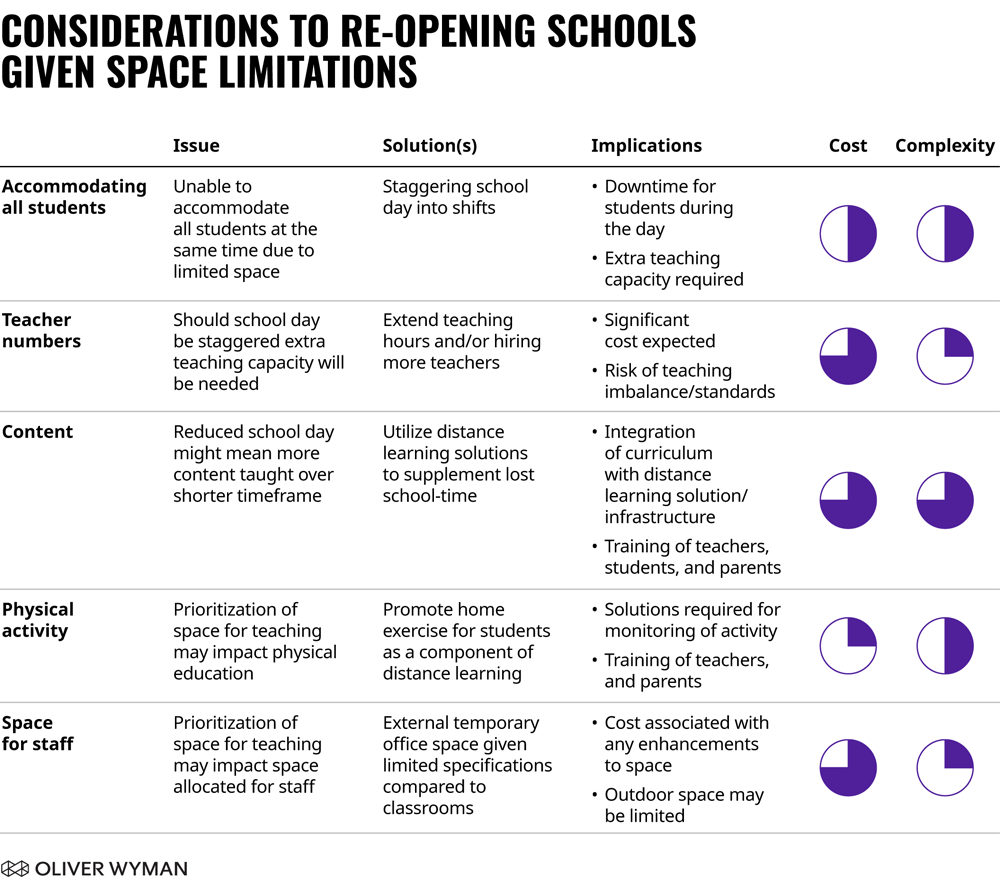Oliver Wyman says schools in the Middle East will need to implement a carefully planned and strategically phased approach to opening up following the deep impact of Covid-19 on the region. The opening strategies, according to Oliver Wyman, must include a pre-opening, opening and post-opening framework and entail fundamental changes to logistics, processes and procedures to ensure safety and a smooth opening of operations for school communities.
Releasing a report called Re-opening Schools Post Covid-19, Oliver Wyman said schools will need to train staff with enhanced roles for nurses, facilities managers and counsellors. Other preparatory activities include physical space and scenario planning in case of infection or a potential outbreak, and procedures to track, trace and test pupils.
Schools will need to train staff with enhanced roles for nurses, facilities managers and counsellors
As part of the three-staged approach, policy makers and school planners receive communication in the opening and post-opening stages to ensure a successful experience for the children, teachers, parents and the wider community. During these phases, there needs to be increased temperature checks at entry, enhanced sterilisation and cleaning processes, along with the limiting the interaction with other students via improved physical layouts.

The closure of academic institutions in the region happened quickly as a response to the Covid-19 pandemic, halting public civil life and regular schooling. The closures have since affected more than 12 million learners in the GCC countries. After two months of lockdown, the Dubai government has announced new measures to lift restrictions on businesses; however, the re-opening of schools and academic institutions is yet to be announced.
The closures have since affected more than 12 million learners in the GCC countries
Jeff Youssef, Partner at Oliver Wyman, said: “With the region facing growing macroeconomic uncertainty, a staged approach to re-opening schools post Covid-19 will allow policy makers and academic institutions to address the long-term implications of prolonged school and university closures.”
“Schools remain critical as they are linked to parents re-joining the workforce and contributing to the economy. It is especially important to avoid further disruptions for graduating classes. Still, the priority is to safeguard the lives and well-being of school communities. With structural measures, governments and principals can anticipate and prepare to reopen schools successfully by putting the necessary safeguards in place.”




